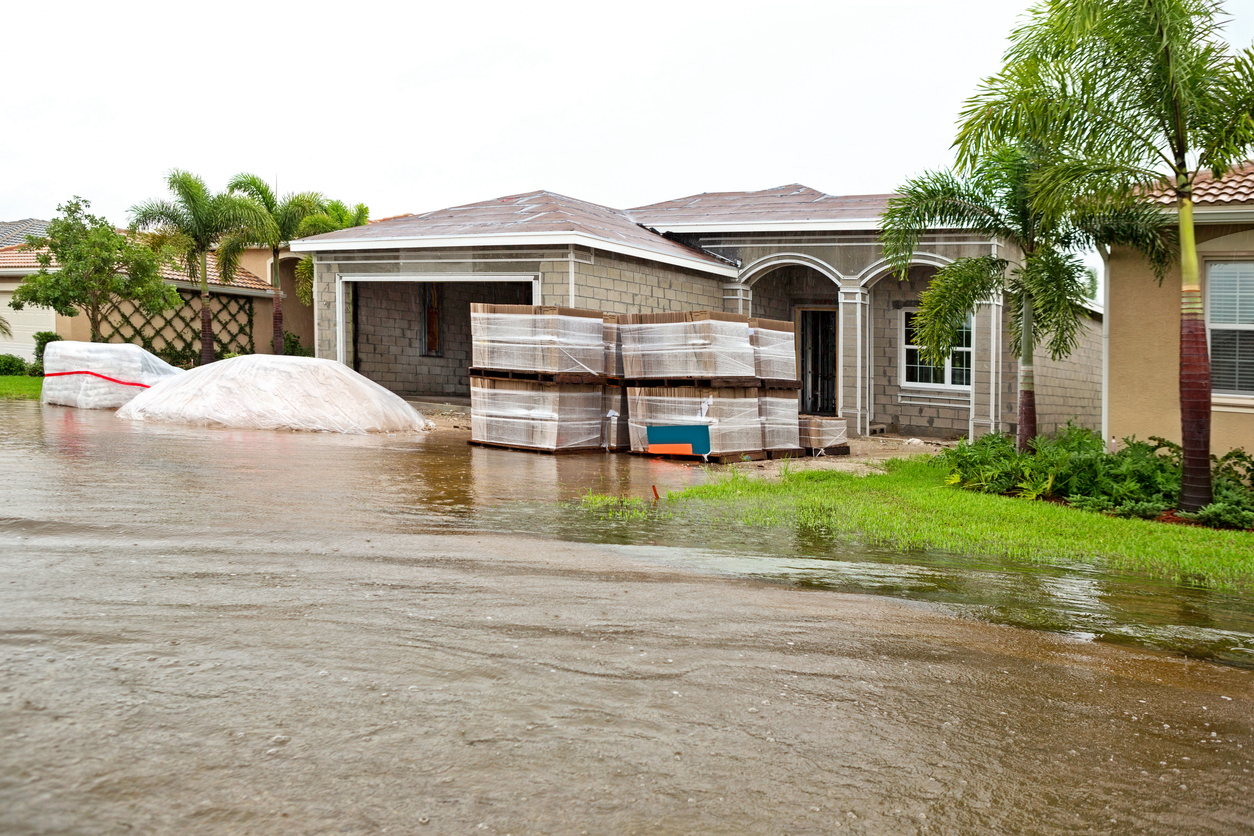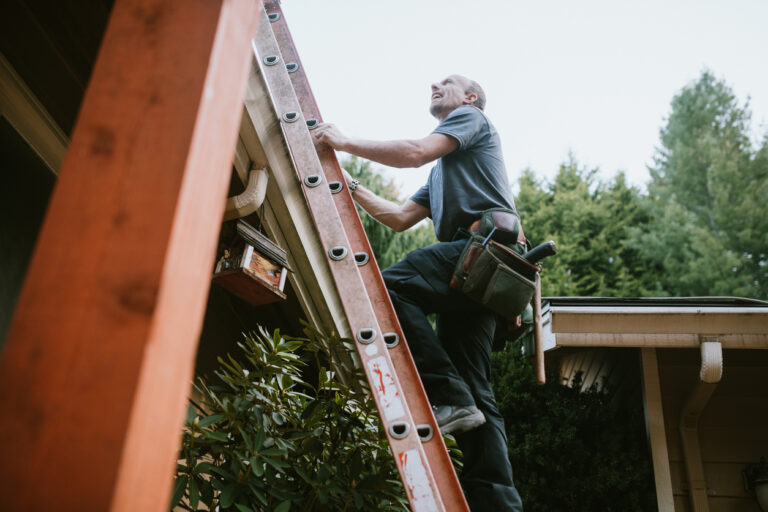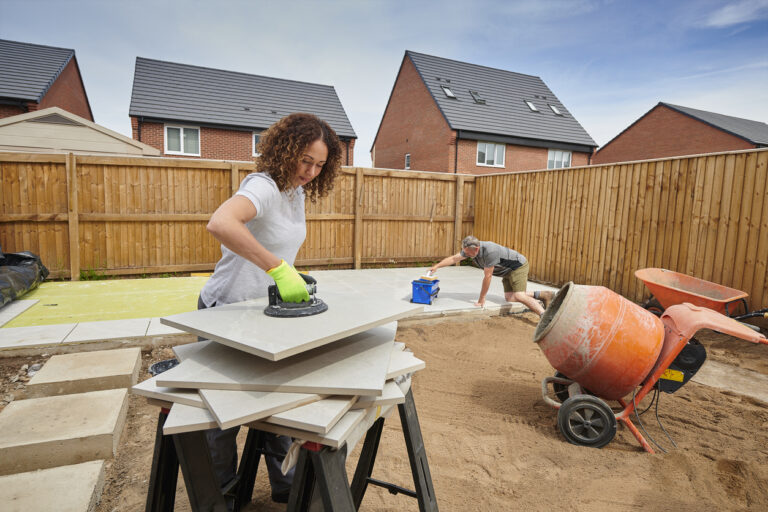Key takeaways:
- Take time to contact insurance companies and other financial providers and apply for financial assistance if you think you will need it.
- Address damage needing immediate attention, but don’t rush more major repairs. Take time to find the right contractor(s).
- Properly document property damage and all communications.
Hurricanes, wildfires, tornadoes, mudslides and other severe weather events are frightening enough. When they cause significant damage to a home, they can be overwhelming and financially taxing. If you are trying to repair your home after a natural disaster, it’s important to make a plan and approach the process in a straightforward manner. If you have experienced a disaster and taken care of your basic needs and are ready to begin the repair and rebuilding process, here are the next steps to take.
- Contact your insurance company(ies) if you’ve not already done so. Most homeowners’ and renters’ insurance policies cover storm damage. The catch is that this coverage may only include water damage when the water enters your home because of wind or other above-ground causes. Reimbursement for water damage caused by flooding – water that travels on the ground, such as from many hurricanes’ extensive rainfall – usually requires special flood insurance coverage. If you purchased flood insurance from the government, you can file a claim here. If you do file a claim, be sure to still contact your home (and auto) insurance company to inform them of your losses.
- Contact your home equity agreement (HEA) provider. If you have an HEA, contact your provider after contacting your insurance company. Unlock customers who live in areas affected by natural disasters can get information through these frequently asked questions.
- Apply for financial assistance. People who live in a region affected by a natural disaster may be eligible for financial assistance, such as grants or loans. It is a good idea to apply immediately if you think you will need it, as the process may take months. Start by visiting https://www.disasterassistance.gov/.
- Take photos. Before you or any contractor does any work, take photos or video of all damage. If you can, hold on to damaged items you are filing claims for (such as ruined furniture) until an insurance adjuster inspects them.
- Document all communications. Record every action you take and every communication you have with insurance adjustors or government agencies. Keep copies of letters and emails, and request delivery confirmation for anything you mail.
- Try not to rush repairs. In some cases, it’s important to take immediate steps to limit additional damage or to make a home livable. This may include cleaning up your home to clear water or debris. The American Red Cross has some tips on how to handle these tasks safely. On the repair side, if you need to cover a hole in the roof, fix a broken window or shovel out mud, do so. (Take before and after photos, and keep all receipts and documents, as your insurance company may reimburse you.) But try to take a little time on larger repairs to make sure you fully understand the scope of the damage and needed repairs and find the right person or company to do the repair at a fair price.
- Find the right contractor(s). It can be challenging to find skilled, reliable professionals to make the repairs you need. You may also need to wait for a good contractor, as the best ones often will be very busy and prioritize current/ongoing clients after a disaster. Briefly, keep these points in mind:
- Choose a contractor through recommendations of friends, relatives, business associates or neighbors if possible. Request contact information for a few satisfied customers and take the time to contact them. Find out how long they’ve been in business and what type of work they do. Because damage after a disaster can often extend beyond what appears on the surface, realize that broad and varied experience can be valuable.
- Watch out for the lowest price.You’ll want to get written estimates from contractors but beware of the lowest price. Remember that estimates are exactly that: estimates. For most projects, it is impossible to predict exact costs until they’re underway.
- Don’t get fixated on licenses. You want a contractor – and their subcontractors – to have appropriate insurance and licenses. However, a contractor who checks out in other ways but does not yet have a license in your town can still be a good choice. In large metropolitan areas, for example, it is typical for every suburb to have its own license-granting authority, so contractors might not obtain a license for every town and suburb until they have projects there. Make sure there are plans in place, however, for the securing of appropriate licenses.
- Know who will be working in your home. Find out who will do the actual work and make sure you are comfortable with those individuals. Subcontractors may be necessary for the job, but make sure your contractor will supervise the work and has qualified the subcontractors.
- Look for red flags. Beware of broad estimates, contractors who won’t specify details in a project and people who seem to be doing too much of a sales job. Pay attention to responsiveness and timeliness. How a contractor handles an initial inquiry indicates what will likely happen later.
- Be wary of scammers. Predators often take advantage of people after a disaster. They may offer to repair or rebuild a home, or claim to be a FEMA inspector. Beware of anyone charging you to do an inspection. Insurance inspectors will not charge you to inspect your property – you have already paid for their services with your insurance premiums. Also, FEMA does not authorize contractors to contact homeowners, and government workers will not ask for money or accept payment. If you suspect fraud, contact the National Center for Disaster Fraud at [email protected].
Your home is one of your most valuable financial assets. Exercise care in repairing and rebuilding it. Doing so after a natural disaster will take time but will pay off in the long run.



